To say that Niamh Fitzpatrick “loved” her sister Dara does not go far enough.
“I ‘love’ her. ‘Loved her’ is past tense,” she clarifies.
“I think that’s really important, because where do those feelings go? You have to do something with the feelings; and the love is still there.”
Which is why her book, Tell Me The Truth About Loss is as much about the enduring power of love as it is an honest – and often raw – journey through the grief that engulfed Niamh after Dara was killed on 14 March 2017 when the Irish Coast Guard helicopter crashed over Blacksod Bay in Co Mayo.
But it’s also about the importance of holding on to hope, even if it’s barely a flicker.
“I hope that people can see that you can have immense loss in your life and that you can get to a place where you can feel hope and you can remember the person who has died; and you can also want to live your own life,” says Niamh, as we talk by phone after our plans for a socially distanced Skype interview are scuppered by a power cut.
I think it forged bonds with us as siblings that helped us now to help each other through the horror of Dara’s death
We had just been talking about Niamh’s upbringing on a farm in the Dublin mountains, of which she has many happy memories, but also feels knitted their family tightly together.
“I think it forged bonds with us as siblings that helped us now to help each other through the horror of Dara’s death,” she reflects.
Chapter one opens with that “horror” many of us will recall hearing on the news; that the Irish Coast Guard helicopter had crashed, claiming all four lives on board. Dara was just 45, and the mother to a two-and-a-half year-old son.
“The heli has gone down,” writes Niamh of the “five words that would change life for ever” in the call that came from one of her sisters just before 6am that morning.
The reality of grief
From that moment, we are plunged into the pain of an ordinary Irish family left picking up the pieces after their world has shattered; but for Niamh – a psychologist with almost 30 years’ experience – it’s as much a study of grief itself, recalling how on the cavalcade journey to Mayo to bring Dara home, she felt compelled to take out her phone and type in just three words.
“And the three words were vicious, violent and visceral,” she says. “As a psychologist and knowing all I knew about people and psychology and emotions; oh my God, I had no idea that grief felt like that. I had no idea. That was even before I had even felt the grief. My body felt the grief. My body understood that Dara was never coming back.”
Those three words would lead to the sentences, paragraphs and chapters of the book she would complete three years later. But as well as dealing with the aftermath of Dara’s death, Niamh also writes about two other losses she has only recently come to recognise as grief: the infertility journey that ended her dream of becoming a mother before Dara’s death, and the breakdown of her marriage shortly afterwards.
It was “a huge decision” to write about these very personal experiences; but it would have been “disingenuous” not to.
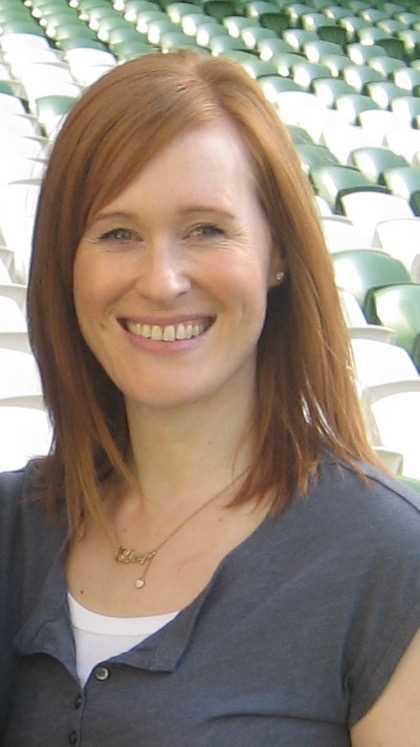
In March 2017, Dara Fitzpatrick lost her life when the Irish Coast Guard helicopter crashed over Blacksod Bay in Co Mayo
“The grief around infertility, the grief around marriage breakdown, they are more private griefs, they’re secret losses, so we live them in a less public way, maybe not public at all,” she says.
“And they are awful, they hurt so badly; and yet you bear them often silently and often without the support that you have with bereavement grief.”
Feel the feelings
What all three journeys do share is the “loss of the future you thought you would have”; and through the book, Niamh opens up about how she negotiated – and sometimes stumbled – on the new path she found herself on.
One of the most important lessons was to “feel the feelings”- the bone deep sorrow, the resentment, the fury, the envy- but ultimately, make the conscious choice that she would not allow them to swallow her whole.
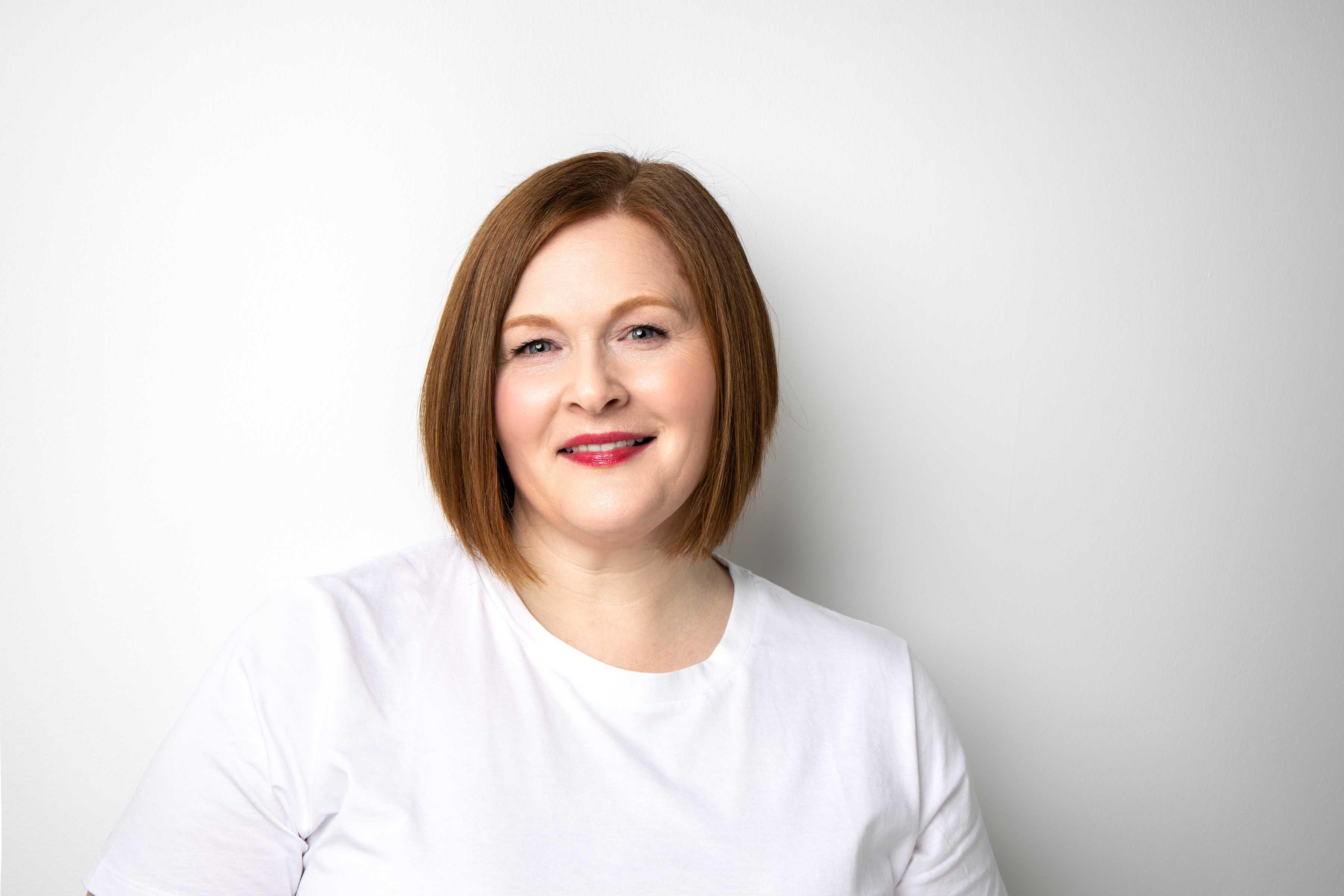
“I’m not saying for a second that it is easy, but understanding that it is possible,” she clarifies. “I knew that it would take all the space in my head and my heart; and I knew there would be no space in my head and my heart for Dara.”
Her professional experience stood to her in some regards; but she also recalls that in the early days after Dara’s death, a colleague, Dr Eddie Murphy, told her “you are not a psychologist, you are a sister.”
“That just set me off on a train of thought and the thing that kept coming back to me was just put one foot in front of the other: just one foot,” says Niamh, explaining that “one foot” could be deciding to have a shower, or eat the omelette that her best friend had cooked for her.
“It’s about survival, which is such a strange word to you because the person you love has just died,” she continues. “They haven’t survived; but you have to survive.”
In the book, she also writes about the many milestones you meet “long after the funeral is over, the sandwiches have gone stale and the teacups have been washed.” Of course, there are the obvious “firsts”- to survive that first Christmas, for instance, Niamh says she kept reminding herself that it was “just a Monday and a big chicken”.
I struggled more after the first anniversary because I think the numbness of that first year in some ways begins to dissipate after that first year
But then there are the more unexpected jolts; for instance, when a cleanser that Dara always brought when the sisters went away together for the weekend ran out, or when the message “Dara has left the group” popped up on WhatsApp. And the fact that all the “firsts” are followed by the next one, and the next...
“I struggled more after the first anniversary because I think the numbness of that first year in some ways begins to dissipate after that first year and your brain starts to realise that this is truly the ‘new normal,’” says Niamh; yet as the book moves on, you see the shift from utter heartbreak to a sense of hope, as she finds the balance between “remembering and living”.
“Dara fought so hard to survive. She would do anything, she would give anything, to have her life back and I think she would be so furious if I didn’t live my life and if we didn’t live our lives, and so there’s a need to live for her and a need to live for yourself,” says Niamh, who hopes that anybody who reads the book while on their own grief journey will see that “you can live that life; and you can carry the loss that you have experienced.”
Dara’s Legacy
Niamh would like to think that Dara would be proud of the book and of the conversations that it will spark, as well as raising awareness of the work of the Irish rescue and emergency services. But she also wants to show people who Dara was – not just a pilot who “dared greatly”– but a loving and much-loved daughter, mother, sister and friend.
“She was kind, she was funny, she was compassionate, she was adventurous, she had a wicked sense of humour and a great sense of adventure,” says Niamh. “I’d love people to see that here was this ordinary girl who did extraordinary things in her life.”
I think that grief is one of the toughest, but also one of the best teachers that I have ever had
And ultimately, that even with the greatest of losses, what survives of us is love.
“I think that grief is one of the toughest, but also one of the best teachers that I have ever had,” Niamh concludes.
“What matters in life – I’ve learnt – is that love matters.”
Perhaps one of the most painful aspects of life with COVID-19 has been the loss of the traditional rituals and community supports for the newly bereaved.
“I think how people are robbed of the wake and the hugs and the funeral,” reflects Niamh. “I think it’s immense loss.”
However, she credits the work of organisations like The Irish Hospice Foundation for providing support in this space, and believes that even in the era of social distancing, local communities can still come together eg if they can’t attend the funeral itself due to restrictions, to stand by their front door as the deceased person and their family make their final journey.
I am here with you. I cannot take away your pain; but I am here with you
“That piece of standing at your doorway or standing in the road is so poignant when you’re bereaved,” says Niamh, who remembers such shows of solidarity when her family brought Dara home.
She also believes that there are many ways to provide support in the weeks and months after the funeral, whether it’s sending a text, card or care package or offering to go for a socially distanced walk and talk whenever the bereaved person feels ready.
“Those things say to you, ‘I am here with you. I cannot take away your pain; but I am here with you,’” she says, adding that the best support anybody can offer is to simply give people the space to “feel their feelings”.
“Let them talk, let them say their name, let them tell their story; because they need to.”
Tell Me The Truth About Loss by Niamh Fitzpatrick is published by Gill Books, RRP €16.99.
Read more
'Being the parent of a stillborn child is a very lonely place'
Pregnancy loss during the COVID-19 pandemic
To say that Niamh Fitzpatrick “loved” her sister Dara does not go far enough.
“I ‘love’ her. ‘Loved her’ is past tense,” she clarifies.
“I think that’s really important, because where do those feelings go? You have to do something with the feelings; and the love is still there.”
Which is why her book, Tell Me The Truth About Loss is as much about the enduring power of love as it is an honest – and often raw – journey through the grief that engulfed Niamh after Dara was killed on 14 March 2017 when the Irish Coast Guard helicopter crashed over Blacksod Bay in Co Mayo.
But it’s also about the importance of holding on to hope, even if it’s barely a flicker.
“I hope that people can see that you can have immense loss in your life and that you can get to a place where you can feel hope and you can remember the person who has died; and you can also want to live your own life,” says Niamh, as we talk by phone after our plans for a socially distanced Skype interview are scuppered by a power cut.
I think it forged bonds with us as siblings that helped us now to help each other through the horror of Dara’s death
We had just been talking about Niamh’s upbringing on a farm in the Dublin mountains, of which she has many happy memories, but also feels knitted their family tightly together.
“I think it forged bonds with us as siblings that helped us now to help each other through the horror of Dara’s death,” she reflects.
Chapter one opens with that “horror” many of us will recall hearing on the news; that the Irish Coast Guard helicopter had crashed, claiming all four lives on board. Dara was just 45, and the mother to a two-and-a-half year-old son.
“The heli has gone down,” writes Niamh of the “five words that would change life for ever” in the call that came from one of her sisters just before 6am that morning.
The reality of grief
From that moment, we are plunged into the pain of an ordinary Irish family left picking up the pieces after their world has shattered; but for Niamh – a psychologist with almost 30 years’ experience – it’s as much a study of grief itself, recalling how on the cavalcade journey to Mayo to bring Dara home, she felt compelled to take out her phone and type in just three words.
“And the three words were vicious, violent and visceral,” she says. “As a psychologist and knowing all I knew about people and psychology and emotions; oh my God, I had no idea that grief felt like that. I had no idea. That was even before I had even felt the grief. My body felt the grief. My body understood that Dara was never coming back.”
Those three words would lead to the sentences, paragraphs and chapters of the book she would complete three years later. But as well as dealing with the aftermath of Dara’s death, Niamh also writes about two other losses she has only recently come to recognise as grief: the infertility journey that ended her dream of becoming a mother before Dara’s death, and the breakdown of her marriage shortly afterwards.
It was “a huge decision” to write about these very personal experiences; but it would have been “disingenuous” not to.

In March 2017, Dara Fitzpatrick lost her life when the Irish Coast Guard helicopter crashed over Blacksod Bay in Co Mayo
“The grief around infertility, the grief around marriage breakdown, they are more private griefs, they’re secret losses, so we live them in a less public way, maybe not public at all,” she says.
“And they are awful, they hurt so badly; and yet you bear them often silently and often without the support that you have with bereavement grief.”
Feel the feelings
What all three journeys do share is the “loss of the future you thought you would have”; and through the book, Niamh opens up about how she negotiated – and sometimes stumbled – on the new path she found herself on.
One of the most important lessons was to “feel the feelings”- the bone deep sorrow, the resentment, the fury, the envy- but ultimately, make the conscious choice that she would not allow them to swallow her whole.

“I’m not saying for a second that it is easy, but understanding that it is possible,” she clarifies. “I knew that it would take all the space in my head and my heart; and I knew there would be no space in my head and my heart for Dara.”
Her professional experience stood to her in some regards; but she also recalls that in the early days after Dara’s death, a colleague, Dr Eddie Murphy, told her “you are not a psychologist, you are a sister.”
“That just set me off on a train of thought and the thing that kept coming back to me was just put one foot in front of the other: just one foot,” says Niamh, explaining that “one foot” could be deciding to have a shower, or eat the omelette that her best friend had cooked for her.
“It’s about survival, which is such a strange word to you because the person you love has just died,” she continues. “They haven’t survived; but you have to survive.”
In the book, she also writes about the many milestones you meet “long after the funeral is over, the sandwiches have gone stale and the teacups have been washed.” Of course, there are the obvious “firsts”- to survive that first Christmas, for instance, Niamh says she kept reminding herself that it was “just a Monday and a big chicken”.
I struggled more after the first anniversary because I think the numbness of that first year in some ways begins to dissipate after that first year
But then there are the more unexpected jolts; for instance, when a cleanser that Dara always brought when the sisters went away together for the weekend ran out, or when the message “Dara has left the group” popped up on WhatsApp. And the fact that all the “firsts” are followed by the next one, and the next...
“I struggled more after the first anniversary because I think the numbness of that first year in some ways begins to dissipate after that first year and your brain starts to realise that this is truly the ‘new normal,’” says Niamh; yet as the book moves on, you see the shift from utter heartbreak to a sense of hope, as she finds the balance between “remembering and living”.
“Dara fought so hard to survive. She would do anything, she would give anything, to have her life back and I think she would be so furious if I didn’t live my life and if we didn’t live our lives, and so there’s a need to live for her and a need to live for yourself,” says Niamh, who hopes that anybody who reads the book while on their own grief journey will see that “you can live that life; and you can carry the loss that you have experienced.”
Dara’s Legacy
Niamh would like to think that Dara would be proud of the book and of the conversations that it will spark, as well as raising awareness of the work of the Irish rescue and emergency services. But she also wants to show people who Dara was – not just a pilot who “dared greatly”– but a loving and much-loved daughter, mother, sister and friend.
“She was kind, she was funny, she was compassionate, she was adventurous, she had a wicked sense of humour and a great sense of adventure,” says Niamh. “I’d love people to see that here was this ordinary girl who did extraordinary things in her life.”
I think that grief is one of the toughest, but also one of the best teachers that I have ever had
And ultimately, that even with the greatest of losses, what survives of us is love.
“I think that grief is one of the toughest, but also one of the best teachers that I have ever had,” Niamh concludes.
“What matters in life – I’ve learnt – is that love matters.”
Perhaps one of the most painful aspects of life with COVID-19 has been the loss of the traditional rituals and community supports for the newly bereaved.
“I think how people are robbed of the wake and the hugs and the funeral,” reflects Niamh. “I think it’s immense loss.”
However, she credits the work of organisations like The Irish Hospice Foundation for providing support in this space, and believes that even in the era of social distancing, local communities can still come together eg if they can’t attend the funeral itself due to restrictions, to stand by their front door as the deceased person and their family make their final journey.
I am here with you. I cannot take away your pain; but I am here with you
“That piece of standing at your doorway or standing in the road is so poignant when you’re bereaved,” says Niamh, who remembers such shows of solidarity when her family brought Dara home.
She also believes that there are many ways to provide support in the weeks and months after the funeral, whether it’s sending a text, card or care package or offering to go for a socially distanced walk and talk whenever the bereaved person feels ready.
“Those things say to you, ‘I am here with you. I cannot take away your pain; but I am here with you,’” she says, adding that the best support anybody can offer is to simply give people the space to “feel their feelings”.
“Let them talk, let them say their name, let them tell their story; because they need to.”
Tell Me The Truth About Loss by Niamh Fitzpatrick is published by Gill Books, RRP €16.99.
Read more
'Being the parent of a stillborn child is a very lonely place'
Pregnancy loss during the COVID-19 pandemic







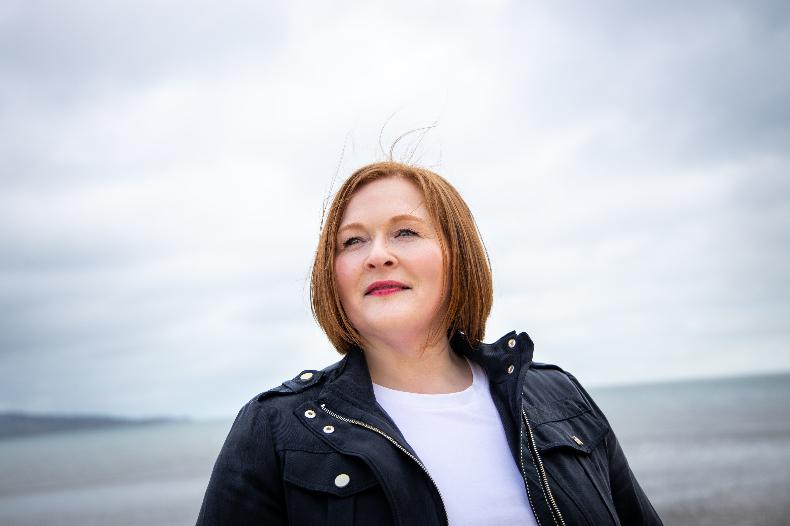
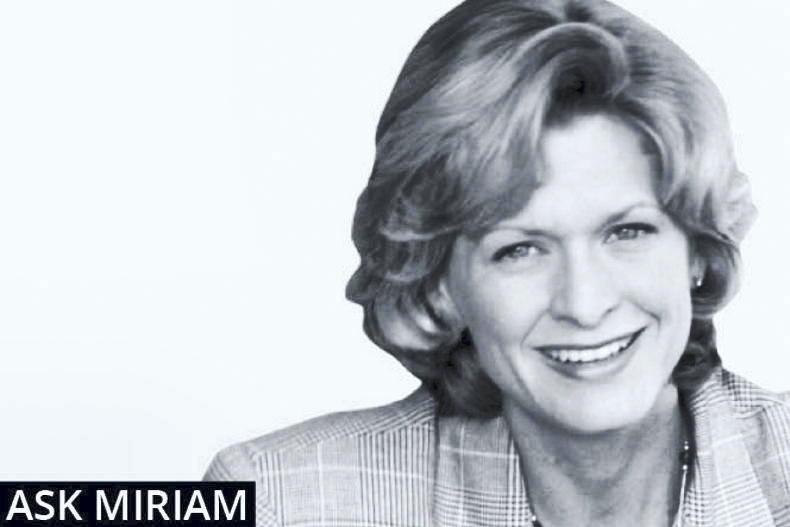
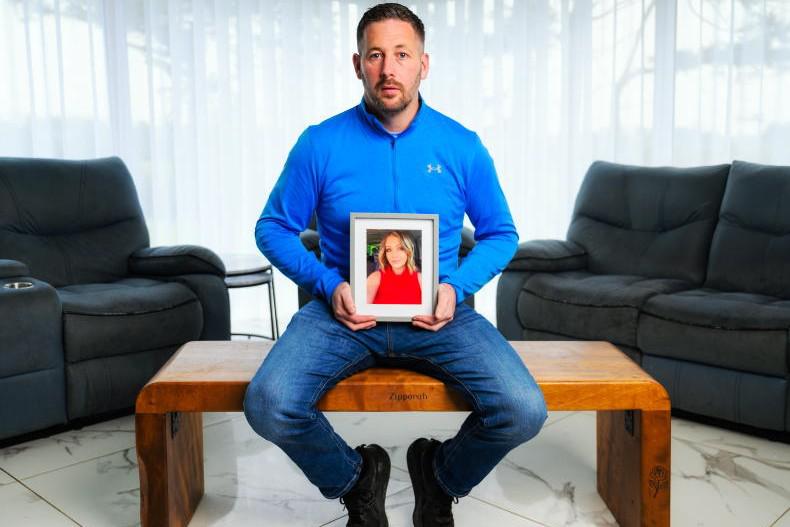
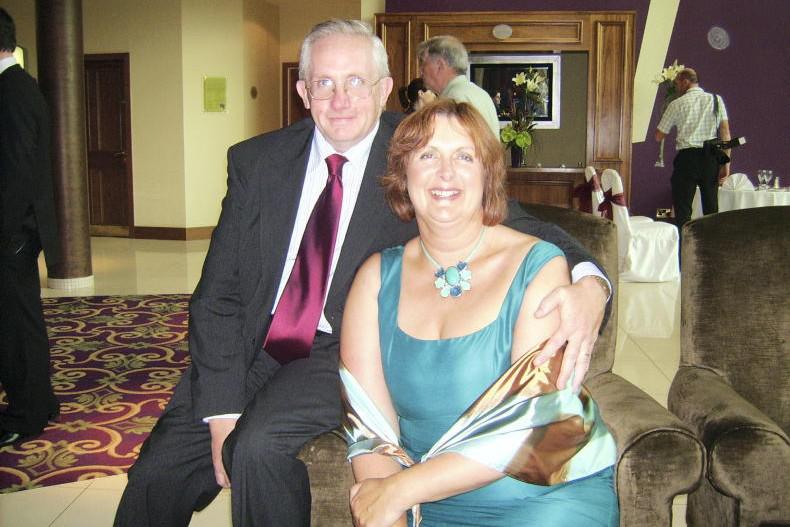

SHARING OPTIONS